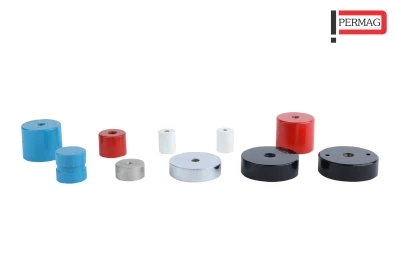Magnetic systems are used in a wide range of industries for various applications, including material handling, separation, and lifting. These systems are critical to many processes and operations, and any malfunction or failure can result in costly downtime and production losses. One way to ensure the continued performance of these systems is by conducting regular magnet audits. In this blog post, we'll explore the benefits of conducting regular magnet audits.
What is a Magnet Audit?
A magnet audit is a comprehensive inspection and testing of magnetic systems and equipment to ensure their continued performance and compliance with industry standards. A magnet audit typically involves visual inspections, measurement of magnetic field strength, testing of magnetic separators, and assessment of magnet system performance.
The Benefits of Conducting Regular Magnet Audits
Improved Safety
Regular magnet audits can help improve workplace safety by identifying and addressing potential hazards and risks associated with magnetic equipment. A magnet audit can help identify any issues that may compromise the safety of workers, such as damaged equipment or inadequate protective measures.
Increased Equipment Reliability
Magnet audits can help increase the reliability and efficiency of magnetic systems by identifying any issues that may impact their performance. By detecting potential problems early, magnet audits can help prevent equipment failure and costly downtime.
Compliance with Industry Standards
Regular magnet audits can help ensure compliance with industry standards and regulations, such as the OSHA regulations. This can help prevent costly fines and penalties associated with non-compliance.
Cost Savings
Magnet audits can help save costs by identifying potential issues early and preventing equipment failure and downtime. This can help reduce repair and replacement costs, as well as minimize the impact on production.
Improved Product Quality
Magnetic systems are often used in material handling and separation processes, where the quality of the final product is critical. Regular magnet audits can help ensure that these systems are performing at their best, which can help improve the quality of the final product.
Increased Equipment Lifespan
Regular magnet audits can help extend the lifespan of magnetic equipment by identifying and addressing potential issues before they lead to equipment failure. This can help reduce the need for costly replacements and prolong the life of the equipment.
Enhanced Performance
Magnet audits can help identify any issues that may be impacting the performance of magnetic systems, such as reduced magnetic field strength or improper placement of magnetic equipment. By addressing these issues, magnet audits can help enhance the performance of magnetic systems and improve overall productivity.
Conclusion
In conclusion, conducting regular magnet audits can provide numerous benefits, including improved safety, increased equipment reliability, compliance with industry standards, cost savings, improved product quality, increased equipment lifespan, and enhanced performance. With the increasing reliance on magnetic systems in various industries, regular magnet audits are becoming increasingly important to ensure continued performance and productivity. By investing in magnet audits, companies can ensure the continued reliability and efficiency of their magnetic equipment, reducing the risk of downtime and increasing the overall profitability of their operations.
PERMAG is a leading supplier of magnetic audit, and we are committed to providing our customers with the highest quality products available on the market. Thanks to our state-of-the-art manufacturing process, we are able to produce magnetic rods that meet the most stringent quality standard
FAQs
What is magnet recognition?
Magnet recognition is a designation awarded by the American Nurses Credentialing Center (ANCC) to healthcare organizations that demonstrate excellence in nursing practice and patient care. This designation is based on a rigorous evaluation of a healthcare organization's nursing practices, including leadership, workforce development, patient care, and outcomes.
The Magnet Recognition Program was established in 1990 to recognize and celebrate organizations that provide exceptional nursing care and promote professional nursing practice. The program is designed to support and promote nursing excellence and is open to healthcare organizations worldwide.
To achieve Magnet recognition, healthcare organizations must undergo a comprehensive application and review process that includes a detailed analysis of their nursing practices and outcomes. The evaluation process involves a site visit by a team of Magnet appraisers, who review the organization's nursing practices, policies, and procedures, as well as conduct interviews with nursing staff and other stakeholders.
Organizations that achieve Magnet recognition are considered leaders in nursing excellence and are recognized for their commitment to providing exceptional patient care. Magnet recognition has been associated with improved patient outcomes, increased nurse satisfaction and retention, and enhanced organizational performance.
In summary, Magnet recognition is a prestigious designation awarded to healthcare organizations that demonstrate excellence in nursing practice and patient care. Achieving Magnet recognition requires a rigorous evaluation of nursing practices and outcomes, and organizations that achieve this designation are recognized for their commitment to providing exceptional patient care and promoting professional nursing practice.


